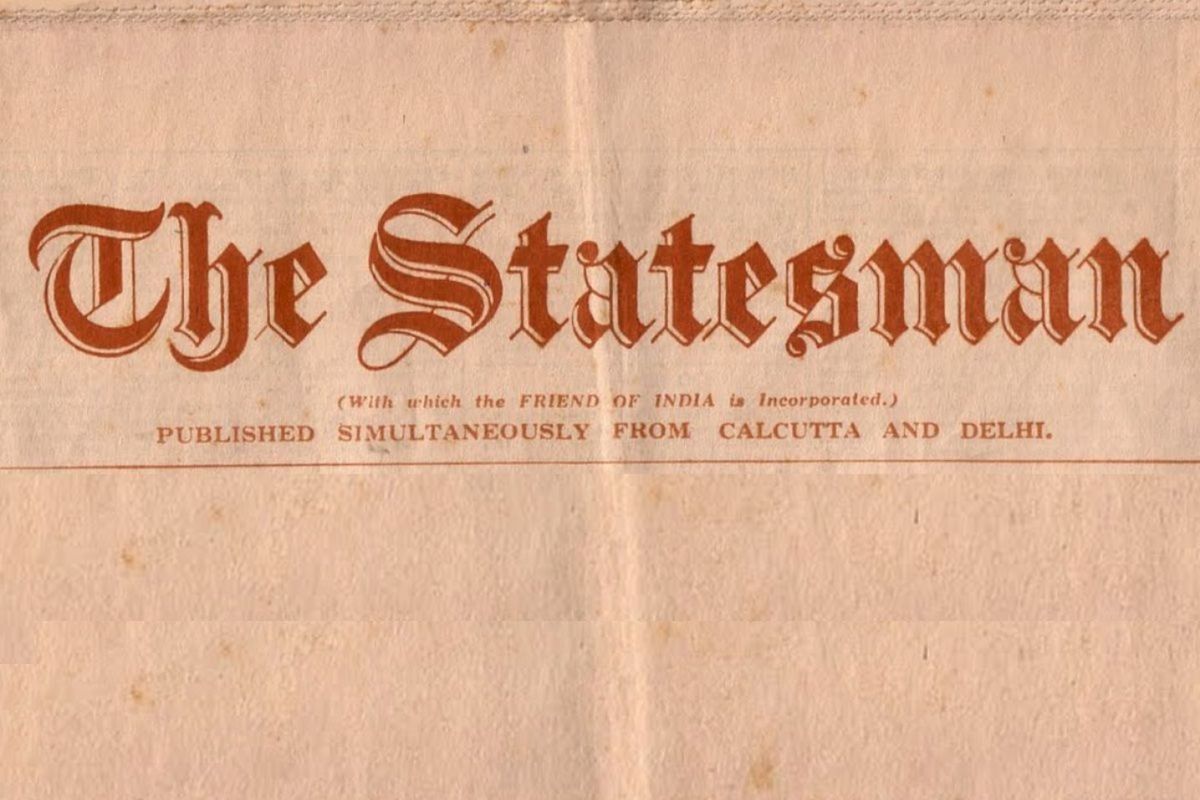A New Day, A New Dawn
There is a surprise for the readers. A special Poila Boishakh gift from none other than West Bengal chief minister Mamata Banerjee. Who has written a piece for this special edition.
On this day a century ago, these were some of the news items The Statesman readers got to read about India and the world.

OCCASIONAL NOTE
From a telegram published today, it would appear that the complete reunion of Scottish Presbyterianism is about to become an accomplished fact. It is nearly eighty years since the Church of Scotland was convulsed by the Disruption, which gave birth to the Free Church of Scotland, and for three-quarters of a century Scotland was the seat of three Presbyterian bodies, holding identical religious views, and following a practically identical form of worship, but only one of them supported by the State. More than a dozen years ago the anomaly was lessened by the fusion of the majority of the adherents of the Free Church with the United Presbyterians, a fusion which gave rise to the memorable controversy between the “U Free” and the “Wee Frees,” which was so bitterly accentuated by a decision of the House of Lords. In spite of this episode, however, the general tendency towards reunion was greatly strengthened by the fusion, and it was not long before negotiations were taken up with a view to the reunion of the Established Church and the United Free Church. So far as the mission field is concerned the reunion has in many instances already taken place. The Scottish Churches College, Calcutta, for example, which is one of the foremost educational institutions in India, is the lineal successor of the old General Assembly’s Institution, and is staffed by missionaries sent out by both churches.
INDIAN EDUCATION
Advertisement
At a meeting of the Indian section of the Society of Arts, Sir William Duke presiding, a paper was read by Mr. P.J. Hartog on “Indian Education.” A letter from Lord Meston was read, suggesting the establishment of a great national trust in which the generosity of India and its friends should be mobilised in order to provide at least part of the vast funds necessary for wise progress and adequate liberality to schools and colleges in India. It would provide a much-needed means by which State aid could be supplemented and private enthusiasm enlisted in directing and influencing educational progress, Lord Meston said he thought there was room for such an organisation, without conflict with the sphere of the universities or the Government, and it seemed to him almost an inevitable concomitant with the coming constitutional changes.
THE SUGAR COMMITTEE
DELHI, DEC 23
After a short recess during the Christmas holidays, the Indian Sugar Committee will reassemble in Calcutta on the 4th January for a tour in Assam and Bengal. On the conclusion of this tour they will proceed about the 21st of January to Burma, returning to Calcutta about the 15th of February. A tour in Southern India will then be undertaken, including a visit to the Madras Presidency and to His Exalted Highness the Nizam’s Dominions, between February 18th and March 15th, to Mysore from March 15th to March 22nd, and the Bombay Presidency from March 23rd to April 5th. The Committee’s movements after this are uncertain, but it is probable that a short return visit will be paid to Bihar from Bombay with a view to further investigating the possibilities of the Gaya, Shahabad and Purnea districts, after which the Committee will proceed to Simla.
CHARGE OF MISAPPROPRIATION
Mr. Salik, Police Magistrate of Alipore has disposed of the case in which Nur Mahomed, a contractor of Watgunge was charged with having misappropriated pieces of cloth used in the preparation of munition bags. Babu Nagendro Nath Banerjee, vakil in opening the case for the Crown stated that the accused took a contract under Messrs. Gangadhar Bannerjee and Co., a Government Contractor, for the supply of munition bags, the materials for which were handed over to him by the said company. The accused after supplying some bags made a default as to the rest of his contract obligation, and misappropriated the portion of the material left with him. The Magistrate on the evidence found the accused guilty and sentenced him to pay a fine of Rs 1,000 or, in default, to undergo six months’ rigorous imprisonment.
REFUGEES AT BAGDAD
In the House of Lords, replying to the Archbishop of Canterbury, Lord Curzon stated that 53,000 refugees Assyrian Christians from Persia and Kurdistan, and Armenians were encamped at Bagdad. They cost Britain two and a half millions sterling annually. The Government’s policy was to repatriate the Persian Assyrians as soon as possible, and to place the other Assyrians in territories within easy reach of our protection. He expressed the opinion that the massacre of the Armenians was unlikely. Before many weeks the Allies would be able to tackle seriously the solution of the Turkish problem, and bring it to a satisfactory conclusion.
Advertisement